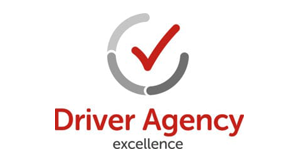
CANDIDATE ZONE
YOUR QUESTIONS ANSWERED
OUR CONSULTANTS TIPS MAKE YOUR RECRUITMENT JOURNEY SIMPLE AND STRESS-FREE
Top Tips & Tricks
Tailor your Application
Sending the same CV everywhere rarely works. Employers look for a clear match between your skills and their role.
How to do it:
- Highlight experience that directly connects to the job description.
- Use keywords from the ad (especially skills, tools, and outcomes).
- Keep it concise, 1–2 pages is usually enough.
Why it matters: A tailored CV tells an employer you’re serious about their role, not just any role.
Focus on Achievements, Not Just Duties
It’s not enough to say what you did; you need to show the impact.
How to do it:
- Swap “Responsible for managing a warehouse team” with “Led a team of 8, reducing errors by 20% and increasing output by 15%.”
- Add metrics wherever you can (time saved, revenue gained, costs reduced).
Why it matters: Numbers and outcomes stick in a hiring manager’s head.
Prepare for Interviews (and Stay Authentic)
Preparation shows professionalism, authenticity builds connection.
How to do it:
- Research the company’s products, values, and recent news.
- Practice answers to common questions (“Tell me about yourself,” “Why this role?”).
- Have 2–3 thoughtful questions ready about the role or team.
Why it matters: Employers remember candidates who show curiosity and self-awareness, not just polished rehearsed lines.
Don’t Overlook Transferable Skills
Not every skill comes from the same industry.
How to do it:
- Highlight leadership, communication, problem-solving, teamwork, and digital literacy.
- Example: If you’ve worked in retail, your customer service and conflict resolution skills transfer well into admin or client-facing roles.
Why it matters: In today’s changing job market, flexibility and adaptability are often more valuable than narrow experience.
Keep Your LinkedIn & Online Presence Updated
Most employers check online before shortlisting.
How to do it:
- Use a clear, professional profile photo.
- Write a short summary that shows your skills and career goals.
- Ask colleagues or managers for recommendations.
- Share or comment on industry content, it shows you’re engaged.
Why it matters: A strong online profile can sometimes get you approached before you even apply.
Know Your Non-Negotiables
The wrong job fit leads to quick burnout.
How to do it:
- Decide your minimum acceptable salary and benefits.
- Be honest about flexibility (remote, hybrid, shifts).
- Think about growth, what skills do you want to build?
Why it matters: Clear priorities help you and your recruiter find the right role faster and avoid mismatches.
Follow Up After Interviews
Small touches show professionalism.
How to do it:
- Send a short thank-you email within 24 hours.
- Mention one specific thing you learned in the interview that excites you about the role.
Why it matters: It reinforces your enthusiasm and helps you stand out from other applicants.
Build Resilience & Stay Consistent
Not every role will go your way, but persistence pays off.
How to do it:
- Treat rejections as learning opportunities. Ask for feedback if possible.
- Keep track of applications so you can follow up and spot patterns.
- Stay open to advice from recruiters, we often see strengths you may overlook.
Why it matters: The right opportunity will come, and every step builds experience.
Pro tip from Alliance Personnel
We’re here to help with CV advice, interview preparation, and honest feedback. Think of us as your career partner, not just your recruiter.
Talk to a consultant today and pick their brains! >
OUR BLOG & NEWS
Our Latest News & Blog Articles.
-



The Sunk Cost Fallacy: When Throwing Good Money After Bad Hiring Is Just Plain Bad
Ever found yourself deep in a hiring process, thinking, “We’ve invested so much time in…
-



The Pitfall of Hyperbolic Discounting in Recruitment: Why Short-Term Gains Can Lead to Long-Term Pains
In the fast-paced world of recruitment, the pressure to fill roles quickly often leads to…
-



AI, Overemployment & Why Recruiters Need a Sixth Sense
Remember when ghosting was the worst thing a candidate could do? Simpler times. These days,…

Alliance Personnel is a people-first recruitment agency in the Midlands, connecting talent and businesses across the UK & Europe.
Our services.
Follow us.
Contact us.
62 Caroline St, Birmingham B3 1UF
Phone : (+44) 0121 265 2080
Email : info@alliance-personnel.com


